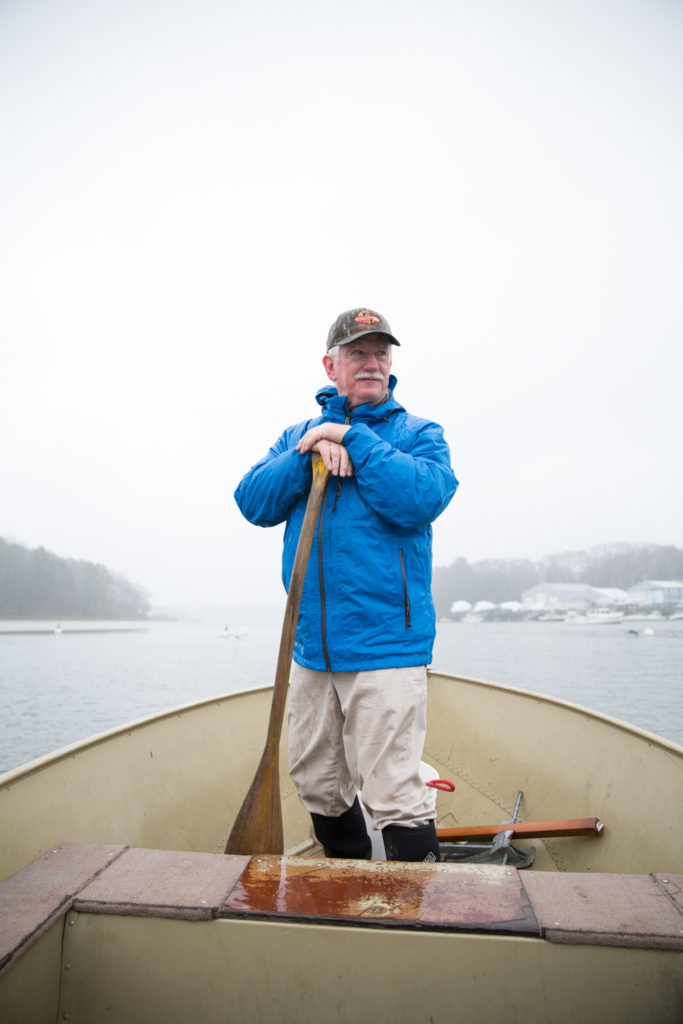The Burial of Boulis Kodi
Reflecting on a remarkable life cut short

It seemed highly unlikely to me that Boulis Kodi was being buried in Evergreen Cemetery. Oh, he has a good spot. It’s on Memorial Avenue, sort of in the front and middle of a beautiful place, but as I stood at his funeral, my thoughts were of the incredible journey this man took.
He was born in Sudan, a hemisphere away. How does it happen that one is buried 6,000 miles from one’s beloved homeland?
In this case, war is the answer. Boulis’s life was changed by the Second Sudanese Civil War. Lasting from 1983 until 2005, it was one of the longest civil wars in history. Two million people died, and four million were displaced. Boulis Kodi was one of the latter, escaping certain death with a journey through Ghana that ended up in Portland, where he sometimes sat near me at Trinity Episcopal Church.
“He was tossed in jail like five times,” his son Ben told me. “Pain. He lived with a lot of pain. His lungs were damaged by the torture. He had asthma.” The Portland Press Herald reported that Boulis was tortured and hung from a tree upside down.
The Sudanese community in Portland said he never stopped speaking out for justice in his home country. The war pitted the Muslim central government against non-Muslim southerners. It was a brutal war filled with humanitarian violations. Those judged to be anti-government were subjected to torture and death.
In 2006 Portland claimed the largest Sudanese population in the United States. Boulis, a farmer back home, was an early arrival, getting here in time for Y2K. He went to work and brought his family to Maine while supporting the work of the Sudan People’s Liberation Army over there.
At his funeral in July, middle-aged and young men talked about “Uncle Boulis” with respect and passion. I can understand why they loved him. Boulis was a barrel-chested, square-shouldered man who looked you in the eye, listened, and spoke intelligently. You trusted him to give it to you straight. He didn’t suffer fools lightly. He expected young people in the Sudanese community to toe the line, and most important, he cared about them.
A number of the women at the service wore long, brightly colored dresses with complementary scarfs wrapped over their heads. A few wept loudly and uncontrollably. While some of the liturgy came from the “Book of Common Prayer,” it wasn’t your usual Episcopal funeral. African hymns with a beat were sung a cappella. As the service went on, more guests arrived.
Looking around, I thought about how the five-year-old kids who arrived from Sudan in 2000 are now 25. They are just as American as peers whose ancestors sailed on the Mayflower. They are hip and handsome young people. The gap between parents and children is greater when the kids grow up in a different culture. It was hard enough to raise my children in Maine; I can’t imagine doing it in a country where I couldn’t speak the language and they could.
Two white ministers led the service, but the speakers were all of Sudanese heritage. They talked about how, even though Boulis had become an American, his heart was still in Sudan. A speaker said his “most important issue is the struggle of our people back home.”
Because of Boulis’s command of languages—he spoke English, Arabic, and Abul, one of the Nuba languages—he went to Iraq as a translator for Blackwater, working with the U.S. Army. He told me that translators were a favorite target of snipers in the Middle East, and that he was guarded and shielded while he did this work.
Part of the reason he worked as a translator was that the money was good. In Maine he worked at a recycling facility, managed a garden, and drove a cab. He found whatever work he could to support his family. As he got older, he got a bit softer and heavier. His asthma left him particularly vulnerable when he contracted COVID-19. He died after a month in the hospital.
“He was a kind person,” Iwani Alwari, a fellow Sudanese immigrant, later told me. “He always tried to solve problems in a nice way.” Boulis certainly belongs in a cemetery that features an “Avenue of Kings.” That moniker was offered up by irascible historian Bill Jordan during a lecture in the cemetery’s chapel one evening. There are 17 former congresspeople here, a bunch of generals, and several cabinet members. Mainers will recognize names like Fessenden, Rines, and Whitney on stones and mausoleums scattered about.
Boulis’s grave is not yet marked and will likely be more humble than the leading names of the town, but his story is just as remarkable.

